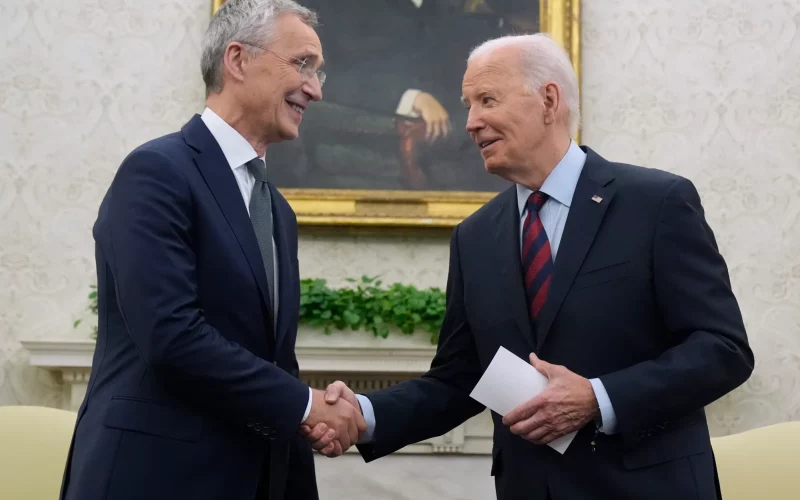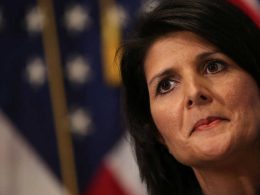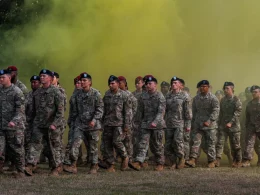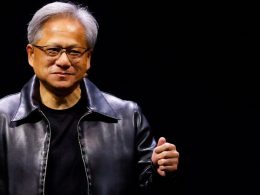In the dynamic world of international diplomacy and strategic alliances, recent developments have sparked significant interest and speculation. The European political landscape, often marked by intricate alliances and divergent interests, witnessed a crucial moment as Dutch Prime Minister Mark Rutte secured a pivotal endorsement from Hungarian Prime Minister Viktor Orbán for a key role within NATO. This endorsement, amidst broader geopolitical implications and domestic political dynamics, underscores the evolving nature of European leadership and its impact on global security frameworks.
The Significance of Mark Rutte’s Candidacy
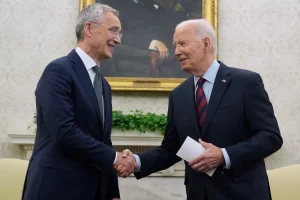
Mark Rutte, a seasoned politician and current Prime Minister of the Netherlands, emerged as a prominent contender for the role of NATO Secretary General. NATO, the North Atlantic Treaty Organization, stands as a cornerstone of transatlantic security cooperation, uniting North American and European countries in a collective defense pact. The Secretary General plays a crucial role in steering the organization through complex geopolitical challenges, ensuring cohesion among member states, and strengthening alliances in an era marked by strategic uncertainties.
Rutte’s candidacy reflects both his extensive political experience and the Netherlands’ historically robust commitment to NATO. His tenure as Prime Minister has been characterized by pragmatic leadership and a proactive approach to European and global security issues. His endorsement by Viktor Orbán, despite differing political ideologies and perspectives within the European Union, signals a significant diplomatic achievement and underscores Rutte’s capacity to build consensus across diverse political landscapes.
The Strategic Implications of Orbán’s Support
Viktor Orbán, the long-serving Prime Minister of Hungary, commands a pivotal position within Central European politics. His endorsement of Rutte for the NATO role is notable not only for its immediate impact on Rutte’s candidacy but also for its broader geopolitical implications. Hungary, situated at the crossroads of Eastern and Western Europe, navigates a delicate balance between EU integration and regional partnerships, including engagements with Russia and other Eastern European countries.
Orbán’s backing of Rutte can be interpreted through multiple lenses. It reflects Hungary’s strategic alignment with NATO and its recognition of Rutte’s capability to navigate the organization through contemporary challenges, including cybersecurity threats, regional instability, and global power shifts. Moreover, Orbán’s endorsement underscores the nuanced dynamics within European politics, where pragmatic alliances often transcend ideological differences in pursuit of strategic goals.
Broader Geopolitical Context and Implications
Beyond the immediate endorsement, Rutte’s potential assumption of the NATO Secretary General role carries broader geopolitical implications. The transatlantic relationship, central to NATO’s mandate, has witnessed strains in recent years, exacerbated by diverging policy priorities between Europe and the United States. Rutte’s leadership could play a pivotal role in reinvigorating transatlantic ties, fostering greater cohesion within NATO, and addressing emerging security challenges in the Euro-Atlantic region and beyond.
Furthermore, Rutte’s candidacy reflects Europe’s evolving role in global security architecture. As traditional alliances are tested by emerging threats and geopolitical realignments, NATO’s adaptation and responsiveness become paramount. Rutte’s leadership qualities, demonstrated through his tenure as Dutch Prime Minister and his diplomatic engagements within the EU, position him as a credible advocate for NATO’s strategic objectives and collective defense commitments.
Domestic and European Political Dynamics
Within the context of domestic politics, Rutte’s pursuit of the NATO Secretary General role also intersects with broader European Union dynamics. The EU’s role in defense cooperation, complementing NATO’s security framework, underscores the interconnectedness of European security initiatives. Rutte’s candidacy underscores the Netherlands’ commitment to multilateralism and international cooperation, reinforcing the country’s proactive stance on global security challenges.
Moreover, Orbán’s endorsement of Rutte illuminates the complexities of political alliances within the EU. As Europe grapples with internal cohesion challenges and external pressures, strategic partnerships forged through pragmatic diplomacy assume heightened significance. Rutte’s ability to secure support from Orbán, despite divergent political trajectories within the EU, underscores the potential for consensus-building and collaborative leadership in navigating complex geopolitical landscapes.
Conclusion: Shaping the Future of NATO and Global Security
In conclusion, Mark Rutte’s advancement in securing Orbán’s backing for the NATO Secretary General role represents a critical juncture in European and global security governance. It highlights the evolving dynamics of European political alliances, the strategic imperatives of NATO’s leadership transitions, and the broader implications for transatlantic security cooperation. Rutte’s candidacy embodies continuity and adaptability within NATO, fostering unity among member states, and addressing multifaceted security challenges in an increasingly complex international environment.
As geopolitical landscapes evolve and strategic alliances redefine global security paradigms, Rutte’s leadership aspirations within NATO exemplify Europe’s commitment to collective defense, transatlantic cooperation, and multilateral diplomacy. His endorsement by Viktor Orbán underscores the potential for pragmatic consensus-building and strategic alignment within European and global security frameworks. Ultimately, Rutte’s journey towards assuming the NATO Secretary General role carries profound implications for the future trajectory of NATO, European security policy, and global stability in the 21st century.






